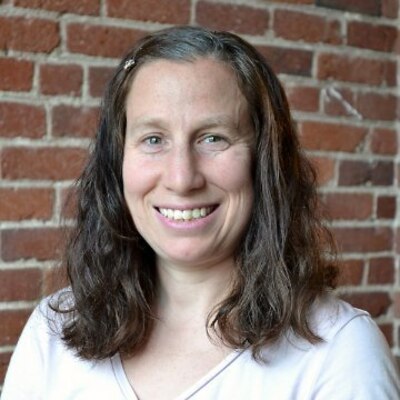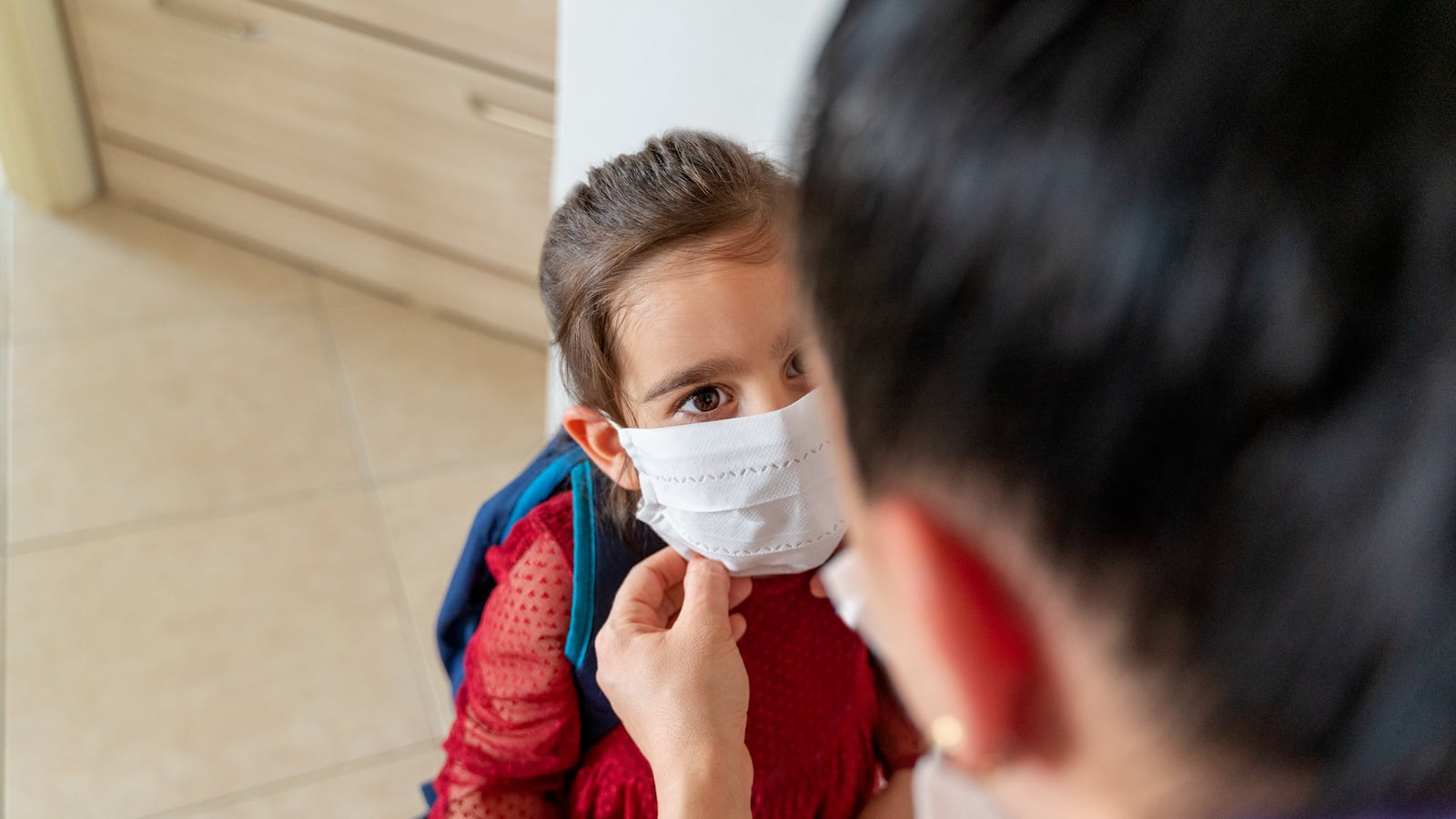Five years ago I ran for my local school board for the first time. My campaign workers— i.e., my husband and two children — helped me make double-sided signs at our dining room table. I outlined the letters, my children colored them in, and my husband attached them to wood posts with duct tape. We then placed them strategically around our New Hampshire town of about 30,000 people. I also told local friends and acquaintances I was running, and they told their friends.
Six signs and a huge game of telephone later, I won a seat on my local school board.

I ran to help kids get the best public education possible. But over the summer I was tasked with deciding whether or not it is safe for children to return to school buildings amid the coronavirus pandemic. It should be a decision about physical and emotional health and well being, but it became political. The president encouraged all schools to open with no enforceable directive. In New Hampshire, our governor left the decision to local districts explaining that all towns faced different issues. That left the decision to me and the six other members of the Derry School Board.
It was the end of July during a heat wave. The middle school gym, which has no air conditioning or ceiling fans, was hot. Nearby towns were simultaneously holding similar meetings and overloading the internet in the area, so our connection was temporarily down. This meant the 50 or so people seated like chess pieces six feet apart along with a few dozen more spread out in the bleachers could hear our meeting, but hundreds more trying to watch online could not. So we paused. People talked amongst themselves or looked on their phones and eyed us with annoyance. We looked nervously at the IT guy. The IT guy typed furiously while talking on his phone.
I distracted myself by looking at my phone. I had received more emails, texts, and calls the previous week than my entire time on the board, and they were still coming in. I answered questions in the grocery store, at the downtown coffee shop while waiting outside six feet apart, on the phone or via email, and on social media. The polite ones had questions or concerns, but not everyone was polite. A teacher asked me why I wanted her to die. A parent asked me why the board would consider making children sacrificial lambs. These comments upset me; I didn’t want anyone to die. Another resident said we were not prepared to make this decision and should start remote in order to safely consider all options.
I agreed with the person who said we were not prepared. But a decision needed to be made. I am an independent writer, editor, and ghostwriter. Other board members include stay-at-home parents, a pharmacist, a builder, and a wireless phone salesman. We regularly make decisions about staffing, budgets, and policy. Were we best suited to decide whether it is safe for children to attend in-person school during a pandemic and under what conditions? I would say no, but everyone above us had punted the decision our way.
This is how it works. Superintendents report to school boards, so whatever proposal they make must be voted on by us. The superintendent and her team consulted with epidemiologists, teachers, pediatricians, and her education colleagues statewide. We received her 54-page proposal to fully open school in person, and were asked to approve it.
While the IT guy tried to work out the internet issue, people texted me about a person at the lead table wearing a mask improperly. I looked out to find the person who sent the text. That’s when I noticed the signs. To get to the meeting, I had driven through a line of teachers — they parted each time a car came through — holding signs. Now those signs were inside with messages such as“Serve all safely,” “Back to normal isn’t possible,” and “Safety first.”
The meeting was in its sixth hour at 11:30 p.m. when the administration finished talking about masks, electrostatic sprayers, socially distanced desks, laptops, and HVAC system cleaning. Then we voted. We weighed the many students in our town on free or reduced-priced lunch who have parents at work all day; the state’s low rate of infection; and the safety measures the administration proposed. I voted with the majority to open schools five days a week with a fully remote option.
I left the meeting exhausted and worried. Had I made the right decision? I thought so, but only time would tell. The next morning, I posted a factual overview of the meeting on the community Facebook page, as I have for years, since reporters and community members rarely show up at meetings and I want everyone to be informed.
A number of people thanked me for my time and my service, some of them saying they disagreed with my vote. I actually appreciated these comments most as disagreement is a healthy part of public discourse.
School started in-person for my kids on September 10. A week later, I knew I had made the right decision. A parent told me her daughter ran into kindergarten all smiles under her mask while she cried for her youngest child’s milestone. My own kids stood in the corner of the dining room, where we take our first-day-of-school pictures, and grinned widely. They were ready to go back. Two weeks on, my kids are still in school, along with about 75 percent of their classmates; the rest are learning remotely or being homeschooled. We have yet to receive a letter about a coronavirus outbreak. While I am acutely aware that one could come any day, I am also glad we gave families the choice to attend school in person for however long it is possible.
Erika Cohen is in her fifth year on the Derry School Board and currently serves as secretary. She has two children, a fifth grader and an eighth grader, in the Derry schools. Erika works as an independent writer, editor and ghostwriter.



